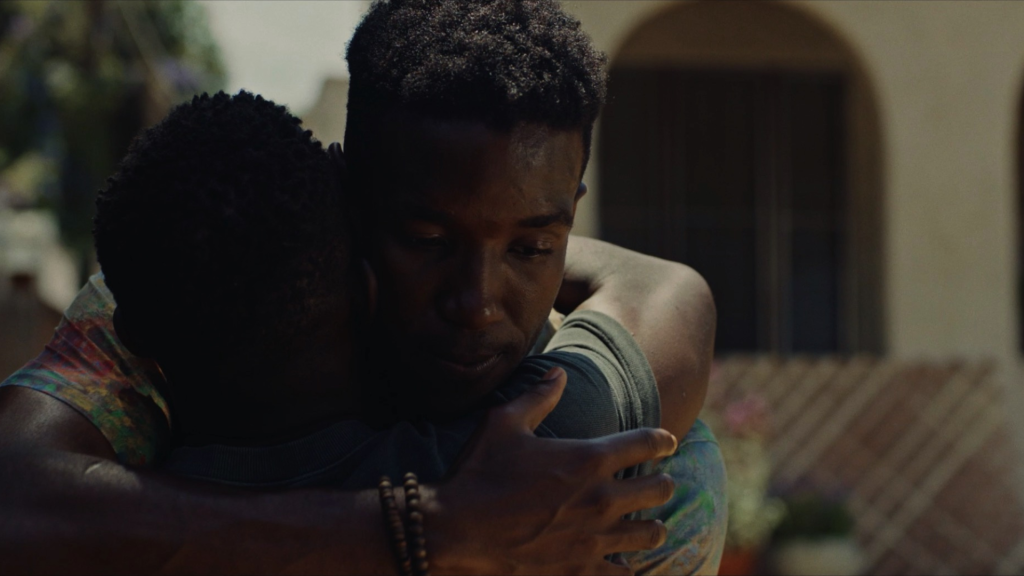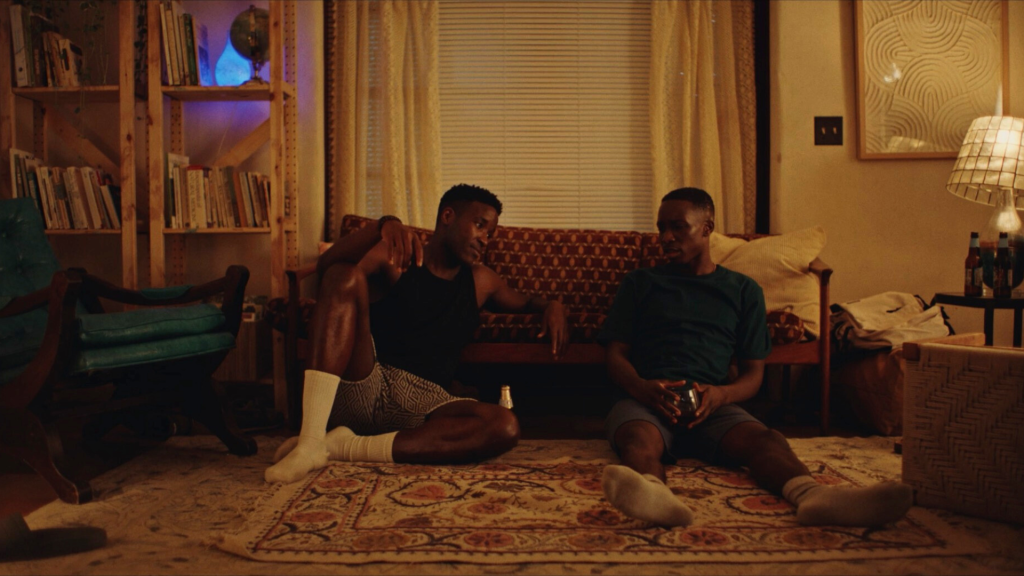A long weekend in Los Angeles forces two brothers to unpack generational trauma and question the validity of their existence as second-generation immigrants in multicultural America.
It’s the 2020s, and Afrobeats has become mainstream in modern American pop culture; it’s no longer strange to hear Wizkid’s “Ojuelegba” or Burna Boy’s “Anybody” at a regular nightclub in San Diego. Beyond that, Ghana is awash with tourists in December and restaurants in Chicago wade into the jollof wars. It’s cool now to identify as African … or is it?
This question, among others, is what Omar S. Kamara sets out to answer in his debut feature film African Giants. For his mission, the Sierra Leonean-American filmmaker (whose short film Mass Ave grabbed the attention of HBO and was nominated for the Grand Prix at the Clement-Ferrand International Film Festival) enlists a small cast that includes Dillon Daniel Mutyaba, Omete Anassi, Tanyell Waivers and Josh Lopez.

When law student Sheku (Anassi) takes a trip from Georgetown to visit his elder brother Alhaji (Mutyaba), an actor looking for his big break in Los Angeles, emotions surge as catch-up conversations lead both men – sons of Sierra Leonean immigrants – to question the strength of their respective dreams and evaluate the depths of their bond.
Sheku, haunted by colourism suffered in the past, is sceptical about how “Africa is the new cool”, and secretly nurses an intention to drop out of law school. Alhaji is resentful of his father who disapproves of his desire to pursue acting, and resorts to sleeping pills as the fear of failure drives him to anxiety. Beneath self-affirmations and fist bumps, they can both feel the shadow of their father looming over them, and each has a crucial decision to make.
With a runtime of 106 minutes, African Giants makes quite the effort to tackle several issues germane to modern sociocultural discourse, including the tensions between Africans and Black Americans, the generational divide in immigrant families, mental health, and black masculinity. There is also a well-handled exploration of interfamilial conflict.

Large portions of the film are shot in one location, save for the restaurant scene with Alhaji’s American girlfriend Cori (Waivers) and the basketball court scene, both of which subtly illustrate the simmering conflict between these brothers who each have things to hide. Mboni Maumba’s production design helps for a more authentic feel, but it is the cinematography of Jonas Fischer (amidst close-up and medium shots that capture the switch in each character’s demeanour) and the music edits of Justin Schornstein that draw out the film’s strong emotional core. Kamara also deploys a voiceover technique through which the two leads provide a window into their individual perspectives on cultural heritage, identity and (ultimately) brotherhood.
The performances of Mutyaba and Anassi are not necessarily flawless as they struggle with their delivery in several scenes until the movie’s final third, but what they lack in experience, they make up for with heart. A better script editor could have shaped the dialogue to be more fluid and less artificial, however, the plot is captivating enough to power through a few patchy sequences.
As far as the story arc goes, African Giants bears a deceptive title; this is nothing like the grass-to-grace story of Giannis Antetokounmpo (whom Alhaji and Sheku are fans of), nor is it a narrative garbed with the braggadocio of Burna Boy’s Grammy-nominated album of the same name. It is an assured debut for Kamara nonetheless, and for an independent feature, it is rendered fairly well.
African Giants won the Audience Award for Best Feature at the 2024 Slamdance Film Festival, and was nominated for Best Independent Feature at the Cleveland Film Festival. It has also been selected for the Atlanta Film Festival, New African Film Festival, and Phoenix Film Festival.
